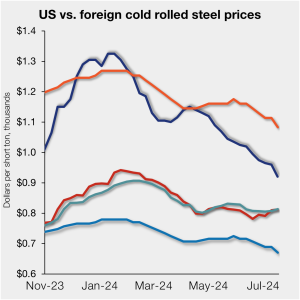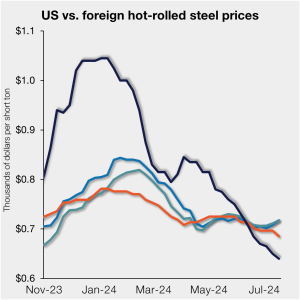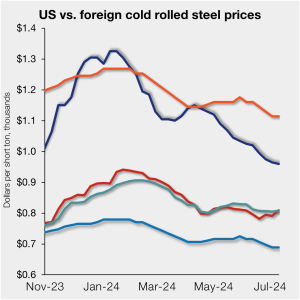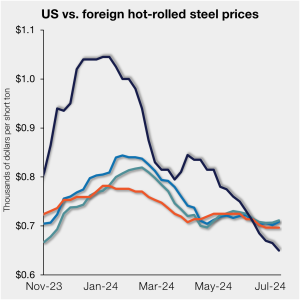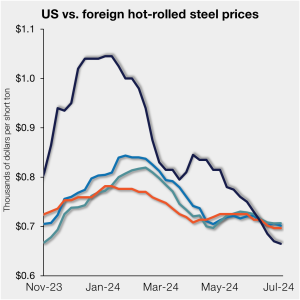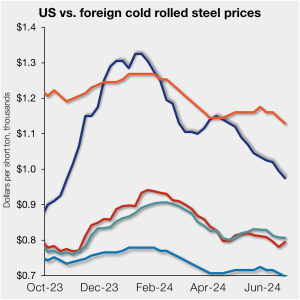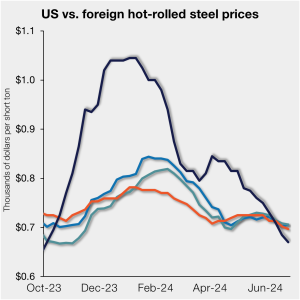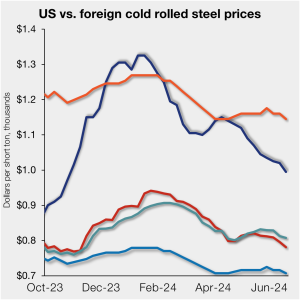CRU: UK plans to increase HR steel quota
The Trade Remedies Authority (TRA) in the UK has proposed raising the tariff rate quota (TRQ) for imports of hot rolled sheet steel because of blast furnace closures at the Port Talbot works in south Wales. Tata Steel shut down one BF in July with the second to follow in September ahead of a switch […]


